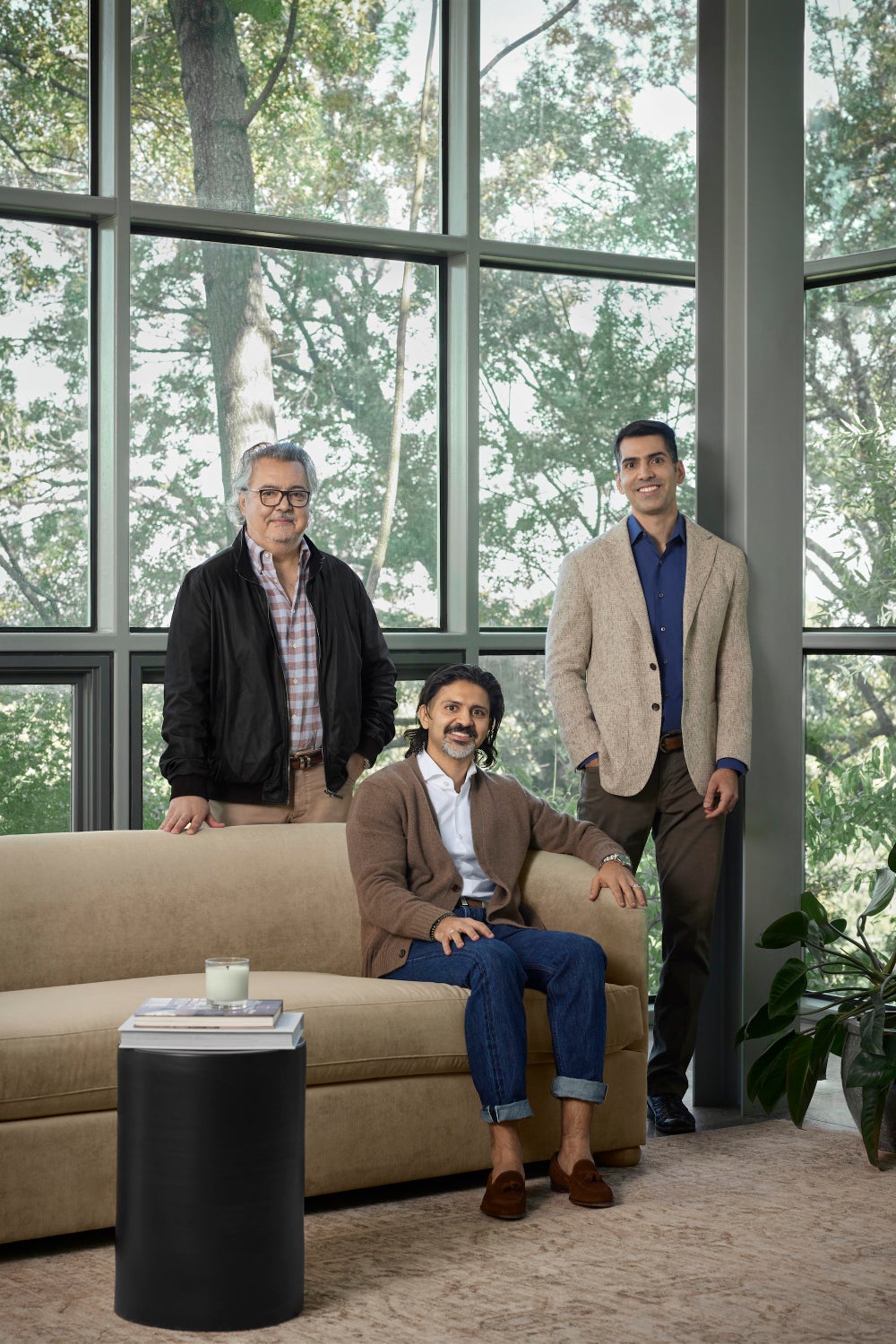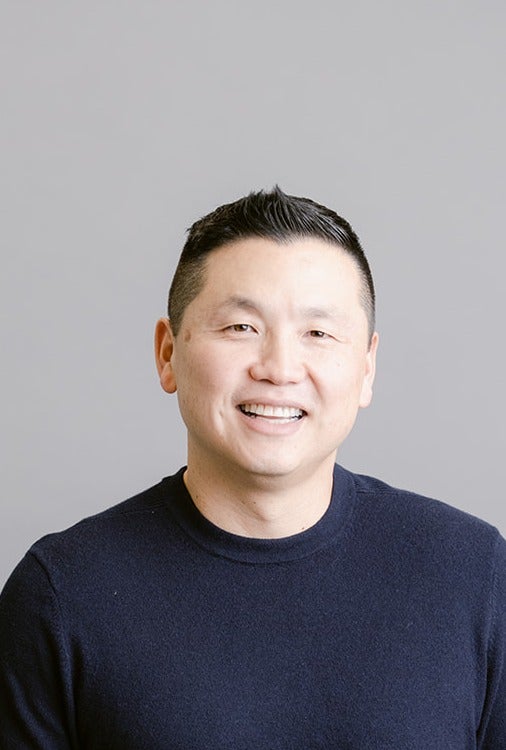Key Takeaways
- First jobs can teach valuable customer-service and sales skills and how to own big mistakes.
- Here’s what eight business veterans learned from their early roles and their advice for young people today.
Every entrepreneur starts somewhere — often with a first job far from the boardroom or venture capital.
From mowing lawns to selling computers, knives and more, some of the most formative early gigs are those that challenge young people to learn new skills, put their customer-service and sales abilities to the test, and give them the autonomy to make — and learn from — their own mistakes.
Related: His Business Made $120K on Kickstarter, Then $2M in 6 Months — And Could Save Your Thanksgiving
This National Entrepreneurship Month, Entrepreneur heard from eight business leaders about the valuable lessons they took away from their first jobs and the best advice they’d give aspiring founders today.
1. Eric LeVine
LeVine, 56, is the Seattle, Washington-based founder and CEO of wine discovery app CellarTracker.
What was your first job?
I convinced a local Apple dealer in 1984 to let me help them sell Macintosh computers over spring break. Ever since that first glimpse of a Mac, my life changed.
What were some of the biggest lessons learned from that first job that helped you succeed as a founder?
That experience taught me three crucial things: First, great products sell themselves when they solve real problems intuitively. Second, being a user of your own product gives you invaluable insight — I was both selling and using Macs then, just like I actively use CellarTracker today. And finally, genuine passion is contagious. My enthusiasm for the Mac resonated with customers, and later, my love for wine and solving a problem I personally faced connected with other collectors. Those principles have been the foundation of everything I’ve built.
What’s your best piece of advice for young people who want to start their own business?
Build something you need yourself. CellarTracker started because I had a wine collection problem that needed solving. I wasn’t trying to capitalize on a market trend or build something for someone else. When you’re solving your own problem, you have a deep understanding of what works and what doesn’t, and your passion will sustain you through the inevitable challenges of building a business.
2. Amir Loloi
Loloi, 66, is the Dallas, Texas-based CEO and founder of rug company Loloi.

Image Credit: Courtesy of Loloi. Amir Loloi and his sons, Steven and Cyrus (left to right).
What was your first job?
I moved to Texas from Iran at 16 years old and spoke very little English. I got my first job at Burger King and learned the language while learning customer service. I sold ice cream in an ice cream truck, and my entrepreneurial instincts encouraged me to go further — eventually buying my own ice cream truck.
You should learn so much about what you like to do and get good at it.
What were some of the biggest lessons learned from that first job that helped you succeed as a founder?
No matter what work was given to me, I always did more. Taking every opportunity and exceeding the expectations of that role helped me rise up throughout the course of my life.
What’s your best piece of advice for young people who want to start their own business?
You should learn so much about what you like to do and get good at it. Know that the only way you can be successful is to surround yourself with people who are smarter and stronger than you are to be able to grow your business. Finally, treat people the way you like to be treated.
3. Karen Robinovitz
Robinovitz, 53, is the New York City-based co-founder and co-CEO of slime brand and immersive experience Sloomoo Institute.

Image Credit: Courtesy of Sloomoo Institute
What was your first job?
It was 1994, and I was an assistant at Women’s Wear Daily, the fashion and beauty industry’s original trade newspaper that still exists today online.
What were some of the biggest lessons learned from that first job that helped you succeed as a founder?
Like anyone in their first job, I made mistakes, and I still think about those lessons to this day. I can recall a memory of submitting a photo WWD took of George Marciano to The New York Times for syndication. This was pre-Google, pre-high-speed internet, pre-email. I trusted the photo department and didn’t triple-check that it was the right shot before sending it off to the NYT.
The next day or two, the NYT ran the image in the paper…and it was George’s brother, Paul. The NYT had to retract it, WWD had to refund them — and it all came down to me. I was basically read the riot act — and let me tell you — I never let a detail slip by me again! My lesson was to have a double- or triple-checking system in place for any project.
What’s your best piece of advice for young people who want to start their own business?
No one can do it all. Surround yourself with people who are strong in the areas where you are not — and collaborate.
4. Jake Bullock
Bullock, 37, is the Arizona-based co-founder and CEO of THC-infused beverage brand Cann.

Image Credit: Courtesy of Cann
What was your first job?
My first-ever job was mowing lawns.
What were some of the biggest lessons learned from that first job that helped you succeed as a founder?
Mowing lawns can be a daunting task, one that can seem like it will take forever to complete. I learned to just put one foot in front of the other and focus on the next step, versus thinking about the entire effort. This learning is great advice for founders riding a roller coaster of positives and negatives: You have to just put one foot in front of the other and keep moving forward.
What’s your best piece of advice for young people who want to start their own business?
Just start it. You will learn so much from the experience. So often, there is pressure to have the right idea and the right founding team, but you can solve all of those issues if you are full speed ahead doing the thing. If you’re just thinking about it, then you’ll never actually do it.
Related: Everything Is Now Mockable — How to Understand the Rise of Alcohol Alternatives and Adaptogen Drinks
5. Esther Hallam
Hallam, 46, is the Woodstock, New York-based founder of baby formula brand Nara Organics.

Image Credit: Courtesy of Nara Organics
What was your first job?
My first “real” job was when I was 16. I was an office assistant for a consulting firm headquartered in my small town. Every day after school, I supported five partners with various administrative tasks. I remember their database engineer taught me all about structured query language (SQL) databases, and it was a core learning that had a direct impact on my future career as a product manager (though I didn’t know it then).
What were some of the biggest lessons learned from that first job that helped you succeed as a founder?
Learn by helping. I did all the remedial administration work for this company, and I got to really understand how they ran their business by doing invisible tasks. In the same way, I get to know each function of my business by assisting in the grunt work. For example, when we were researching and developing our formula in a lab, I washed the equipment because I was not a scientist. But by washing the equipment, I got to really understand how the manufacturing process worked.
What’s your best piece of advice for young people who want to start their own business?
Just do it, and especially for young people: You have time on your side. You will never be ready, and there will never be a perfect time, which means you’re always ready, and it’s always a perfect time to start. After that, it’s continuously grounded in your integrity, and you enjoy the journey.
6. David Yeom
Yeom, in his 50s, is the Los Angeles, California-based CEO of online invitation company Evite.

Image Credit: Courtesy of Evite
What was your first job?
My first job out of college was at Arthur Andersen in downtown LA, doing audit and tax consulting. My first client engagement? Three days straight of photocopying stacks of documents. It was humbling, grueling work, especially during peak periods when 100-plus-hour weeks were the norm.
Talk to as many people as possible about your ideas.
What lessons from that first job helped you succeed as a business leader?
Despite the long hours, it was incredibly rewarding. I got to work with talented people and fast-growing companies, which was an amazing learning environment. I was shy and nervous about public speaking, but I had to present often — those experiences pushed me out of my comfort zone and built the confidence and character that set me on the path to entrepreneurship.
What’s your best piece of advice for young people who want to start their own business?
The best advice for aspiring entrepreneurs is to talk to as many people as possible about your ideas — especially those who have walked a similar path. Building a business takes a village, and you never know who might become a co-founder, investor or key team member along the way.
7. Meenakshi Lala
Lala, 45, is the New York City-based CEO of online flower delivery company UrbanStems.

What was your first job?
My first job was in fashion, and it shaped everything about how I lead today. It was fast, demanding and deeply creative — you had to think on your feet, make decisions quickly and stay incredibly close to the customer.
What lessons from those early roles helped you succeed as a CEO?
Those initial experiences taught me agility, resilience and the importance of balancing creativity with operational discipline — lessons that have stayed with me ever since.
Fashion taught me to move fast but stay intentional and to lead with both instinct and structure. It also taught me to think brand first — every decision, from product to people, should reflect who you are and what you stand for.
Those lessons made UrbanStems a natural next step — a chance to bring that same mix of speed, creativity and purpose to a completely different world.
8. Ben Witte
Witte, 37, is the Los Angeles, California-based founder and co-CEO of relaxation beverage Recess.

What was your first job?
My first real job was selling Cutco knives, a job that was laser-focused on in-person sales.
What were some of the biggest lessons learned from that first job that helped you succeed as a founder?
While selling knives was not my calling, it taught me how to hustle and make sales. I learned what rejection felt like early on, and amidst the ups and downs of any startup journey, it’s a feeling entrepreneurs are forced to become comfortable with.
What’s your best piece of advice for young people who want to start their own business?
Being told “no” is inevitable, but it’s not a stop sign. That feeling of rejection I learned in my first job used to seem defeating, but as a startup founder, I quickly learned that every “no” is a valuable piece of feedback. Along Recess’s journey, I followed my vision from day one despite any doubt from investors, consumers, etc. — and now we’ve evolved relaxation beverages into a mainstream category.
